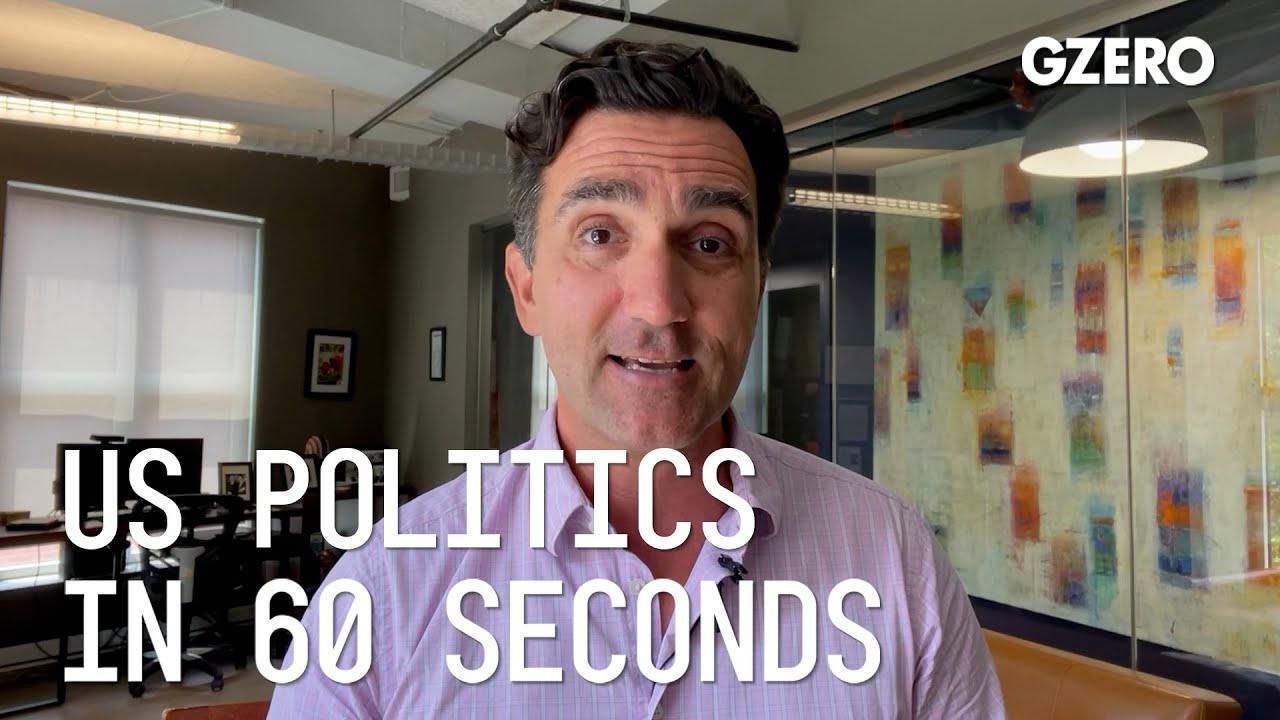July 13, 2022
Jon Lieber, head of Eurasia Group's coverage of political and policy developments in Washington, DC, shares his analysis on US politics:
Are America's political leaders too old?
A new poll this week suggests the Democratic voters would be very open to alternatives to President Joe Biden in the 2024 election cycle. Many Democrats, including Biden himself, argue that he offers their best chance to defeat our Republican challengers in two years, particularly if that challenger is former President Donald Trump. But it's very clear through polling leaks and voter interviews, that there is a high degree of concern about one major issue, President Biden's age. Among the 64% of Democratic primary voters in the New York Times poll who said they would prefer a candidate other than Joe Biden, 33%, a plurality, said it was because of his age. Biden is already the oldest president in history, and if he wins another term, he would be 82 on Inauguration Day, and 86 when he finishes his second term.
But Biden isn't the only aging American holding onto power in the United States. The Speaker of the House is 82 years old. Her second in command is 83. The minority leader of the Senate is 80, while the majority leader is a relatively spry 71. The former President of the United States, Donald Trump, who himself was once the oldest president ever, and is currently the front runner for the Republican nomination in 2024, is 76 and would be 78 if he were to be sworn in for another term. Americans are living longer and older people are healthier than ever, but this group of aging leaders has held onto power for decades and is not making room for the younger generation.
Speaker Nancy Pelosi has led House Democrats since 2003 and intends to run for another term in Congress this year. Longtime presidential advisor, David Gergen has called for an age limit on the presidency, but that's unlikely to stop voters who keep electing these septuagenarians. And the age is not just a political question. Elderly leaders holding on the power for too long can have profound consequences, as was the case when late Supreme Court Justice, Ruth Bader Ginsburg died in office at age 87, allowing then President Trump to nominate her replacement and helping to tip the scales of the Supreme Court in favor of the conservatives that now dominate it.
Age obviously affects everybody differently. There are some people who can clearly serve well into their golden years, and others who are probably ready to retire much younger, and it's impossible for a casual observer to judge how it is affecting a political leader. But the real issue is that aging leaders don't make room for the next generation, leading to political leadership that has long institutional memories and relationships, but also can occasionally be out of touch with a direction of the country. America's aging leadership is also an outlier in the globe. Most developed countries have seen the average age of their heads of state decline over the last 50 years with an average age of 54, and though the US has had two leaders in the last 30 years who are in their 40s, the current gray-bearded leadership of the United States is truly a rarity.
There's no solution to this. These leaders hold power through democratic processes and there are no rules that mandate retirement, and incumbents have huge advantages in winning re-election, especially for politicians with high name recognition and massive and loyal fundraising operations. So until younger party loyalists get tired of the boomers calling the shots, these aging leaders are going to hold onto power and hold off on retirement.
Thanks for watching. This has been US Politics In (a little over) 60 Seconds.
From Your Site Articles
- The Graphic Truth: Old leaders, young populations - GZERO Media ›
- Biden's big rebrand - GZERO Media ›
- The Graphic Truth: How do US presidents do in their first year ... ›
- Hard Numbers: Biden's approval dips,India-UAE eye trade deal ... ›
- Age limits for elected officials: Buttigieg weighs in - GZERO Media ›
More For You
Most Popular
Prime Minister Narendra Modi waves to the crowd during the opening ceremony at AI Impact Summit 2026 at Bharat Mandapam, in New Delhi on Thursday. Switzerland President Guy Parmelin also present.
DPR PMO/ANI Photo
“For India, AI stands for all inclusive,” reads the billboard outside this week’s AI Impact Summit in New Delhi organized by the Indian government, the first major gathering on the subject in the Global South.
A general view of U.S. Supreme Court in Washington, D.C., U.S., January 20, 2026.
REUTERS/Nathan Howard/File Photo
In a massive blow to US President Donald Trump’s trade and foreign policy agenda, the US’s top court ruled that the president overstepped his authority when he used the International Emergency Economic Powers Act (IEEPA) to impose tariffs. The decision was 6-3.
Think you know what's going on around the world? Here's your chance to prove it.
© 2025 GZERO Media. All Rights Reserved | A Eurasia Group media company.
